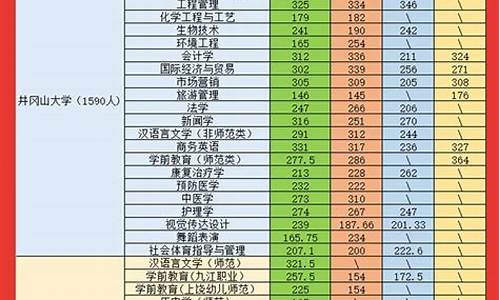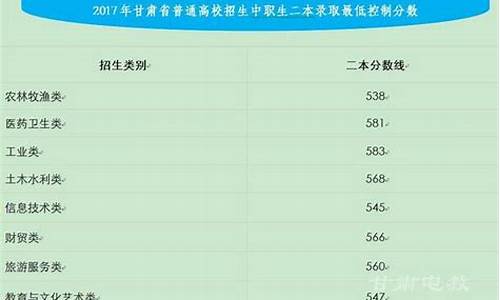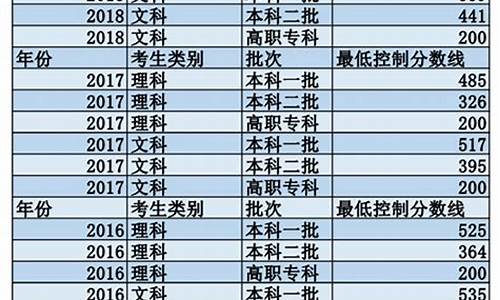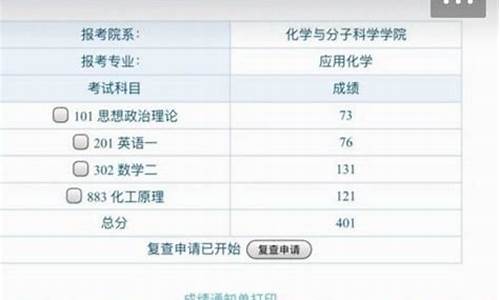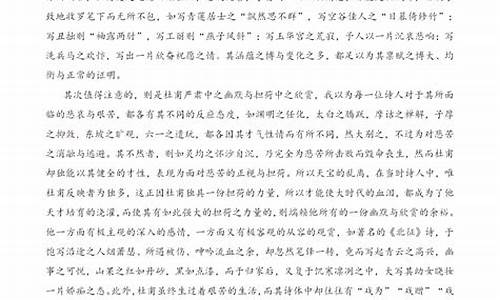您现在的位置是: 首页 > 招生信息 招生信息
英语高考句型和短语_高考英语短语与句型
tamoadmin 2024-07-14 人已围观
简介1.高考英语常考短语及固定搭配2.高考英语完形填空常见短语搭配3.高中英语重点句型归纳4.高三英语单词词组大全5.求高中英语写作的常用短语以及句型6.高考中能用到的英语语法和各语法的学习思路或方法 还有盈余作文中的套话语句导读成人高考作为提升学历的途径,一直深受在职人员的喜爱,当然取得好成绩也是大家都希望的,在成考的众多科目中,英语是提分比较快的科目,英语的学习我们可以从词汇、句型、语法等方面入
1.高考英语常考短语及固定搭配
2.高考英语完形填空常见短语搭配
3.高中英语重点句型归纳
4.高三英语单词词组大全
5.求高中英语写作的常用短语以及句型
6.高考中能用到的英语语法和各语法的学习思路或方法 还有盈余作文中的套话语句
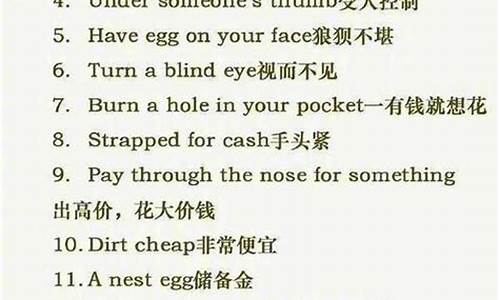
导读成人高考作为提升学历的途径,一直深受在职人员的喜爱,当然取得好成绩也是大家都希望的,在成考的众多科目中,英语是提分比较快的科目,英语的学习我们可以从词汇、句型、语法等方面入手进行学习,今天给大家带的是2021成人高考高起点《英语》常考句型结构,赶紧和小编一起来学习一下。
1、“It is in(with)…as in(with)”
It is in life as in a journey.
2、“All+抽象名词”或“抽象名词+itself”(very+形容词)
He was all gentleness to her.
3、“many as well…as”和“might as well …as” “many as
well…as”可译为“与其……,不如……,更好”,“以这样做……为宜”,“如同……,也可以……”等等。“might as well
…as”表示不可能的事,可译为“犹如……”,“可与……一样荒唐”,“与其那样不如这样的好”等等。
One may as well not know a thing at all as know it imperfectly.
4、“as good as…”相等于,就像,几乎如;实际上,其实,实在。
The merchant as good as promised the orphan boy,that he would adopt him.
5、as…as…can(may)be
It is as plain as plain can be.
6、利用词汇重复表示强调
A crime is a crime a crime.
7、同格名词修饰是指of前后的两个名词都指同一个人或物,“of”以及它前面的名词构成一个形容词短语,以修饰“of”后面的那个名词。如“her old
sharper of a father”,可译为:“她那骗子般的父亲”。
Those pigs of girls eat so much.
8、It作先行主语和先行宾语的一些句型
She had said what it was necessary to say.
9、“something(much)of”和“nothing(little)of” “something of”相当于“to some
extent”,表示程度。在疑问句或条件从句中,则为“anything of ”,可译为“有点”,“略微”等。译为“毫无”,“全无”。much
of译为“大有”,not much of可译为“算不上”,“称不上”,little of可译为“几乎无”,something
like译为“有点像,略似”。
They say that he had no university education,but he seems to be something of
a scholar.
10、强调句型
It is not who rules us that is important,but how he rules us.
以上的10个2021成人高考高起点《英语》常考句型结构,就给大家说到这里了,希望大家抓紧时间学起来,当然句型学完后,还是希望大家能够进行篇章练习,不断提高自己的英语水品,加油!
高考英语常考短语及固定搭配
万能句型:
开头句型:
1.As far as ...is concerned 就……而言
2.It goes without saying that... 不言而喻,...
3.It can be said with certainty that... 可以肯定地说......
4.As the proverb says, 正如谚语所说的
5.It has to be noticed that... 它必须注意到,...
6.It's generally recognized that... 它普遍认为...
7.It's likely that ... 这可能是因为...
8.It's hardly that... 这是很难的......
9.It's hardly too much to say that... 它几乎没有太多的说…
10.What calls for special attention is that...需要特别注意的是
11.There's no denying the fact that...毫无疑问,无可否认
12.Nothing is more important than the fact that... 没有什么比这更重要的是…
13.what's far more important is that... 更重要的是…
衔接句型
1.A case in point is ... 一个典型的例子是...
2.As is often the case...由于通常情况下...
3.As stated in the previous paragraph 如前段所述
4.But the problem is not so simple. Therefore 然而问题并非如此简单,所以……
5.But it's a pity that... 但遗憾的是…
6.For all that...对于这一切...... In spite of the fact that...尽管事实......
7.Further, we hold opinion that... 此外,我们坚持认为,...
8.However , the difficulty lies in...然而,困难在于…
9.Similarly, we should pay attention to... 同样,我们要注意...
10.not(that)...but(that)...不是,而是
11.In view of the present station.鉴于目前形势
12.As has been mentioned above...正如上面所提到的…
13.In this respect, we may as well (say) 从这个角度上我们可以说
14.However, we he to look at the other side of the coin, that is... 然而我们还得看到事物的另一方面,即 …
结尾句型
1.I will conclude by saying... 最后我要说…
2.Therefore, we he the reason to believe that...因此,我们有理由相信…
3.All things considered,总而言之 It may be safely said that...它可以有把握地说......
4.Therefore, in my opinion, it's more advisable...因此,在我看来,更可取的是…
5.From what has been discussed above, we may safely draw the conclusion that….通过以上讨论,我们可以得出结论…
6.The data/statistics/figures lead us to the conclusion that….通过数据我们得到的结论是,....
7.It can be concluded from the discussion that...从中我们可以得出这样的结论8.From my point of view, it would be better if...在我看来……也许更好
举例句型
1.Let's take...to illustrate this.
2.let's take the above chart as an example to illustrate this.
3. Here is one more example.
4.Take … for example.
5.The same is true of….
6.This offers a typical instance of….
7.We may quote a common example of….
8.Just think of….
常用于引言段的句型
1.Some people think that …. 有些人认为…To be frank, I can not agree with their opinion for the reasons below. 坦率地说,我不能同意他们的意见,理由如下。
2. For years, … has been seen as …, but things are quite different now.多年来,……一直被视为……,但今天的情况有很大的不同。
3. I believe the title statement is valid because…. 我认为这个论点是正确的,因为…
4. I cannot entirely agree with the idea that ….我无法完全同意这一观点的… I believe….
5. My argument for this view goes as follows.我对这个问题的看法如下。
6. Along with the development of…, more and more….随着……的发展,越来越多…
7. There is a long-running debate as to whether….有一个长期运行的辩论,是否…
8. It is commonly/generally/widely/ believed /held/accepted/recognized that….它通常是认为…
高级句型:
People’s views on … vary from person to person. Some hold that …. However, others believe that….人们对……的观点因人而异.有些人认为……,然而其他人却认为……
People may he different opinions on …人们对……可能会有不同的见解.
Attitudes towards (drugs) vary from person to person.人们对待的态度因人而异.
There are different opinions among people as to …关于……,人们的观点大不相同.
Different people hold different attitudes toward (failure). 对(失败)人们的态度各不相同。
Taking all these factors into consideration, we naturally come to the conclusion that…
把所有这些因素加以考虑,我们自然会得出结论……
Taking into account all these factors, we may reasonably come to the conclusion that …
考虑所有这些因素,我们可能会得出合理的结论……
Hence/Therefore, we’d better come to the conclusion that …
因此,我们最好得出这样的结论……
There is no dou that (job-hopping) has its drawbacks as well as merits.
毫无疑问,跳槽有优点也有缺点.
All in all, we cannot live without … But at the same time we must try to find out new ways to cope with the problems that would arise.
总之,我们没有…是无法生活的.但同时,我们必须寻求新的解决办法来对付可能出现的新问题.
It is high time that we put an end to the (trend).该是我们停止这一趋势的时候了.
It is time to take the advice of … and to put special emphasis on the improvement of …
该是纳……的建议,并对……的进展给予特殊重视的时候了。
There is no dou that enough concern must be paid to the problem of …
毫无疑问,对……问题应予以足够的重视.
Obviously, … If we want to do something … , it is essential that …
显然,如果我们想做某事,很重要的是…
Only in this way can we … 只有这样,我们才能……
It must be realized that …我们必须意识到……
Obviously, if we don’t control the problem, the chances are that … will lead us in danger.
很明显,如果我们不能控制这一问题,很有可能我们会陷入危险.
No dou, unless we take effective measures, it is very likely that …
毫无疑问,除非我们取有效措施,很可能会……
It is urgent that immediate measures should be taken to stop the situation.
很紧迫的是,应立即取措施阻止这一事态的发展.
According to a recent survey, four million people die each year from diseases linked to smoking.
依照最近的一项调查,每年有4,000,000人死于与吸烟有关的疾病。
The latest surveys show that quite a few children he unpleasant associations with homework.
最近的调查显示相当多的孩子对家庭作业没什么好感。
No invention has received more praise and abuse than Internet.
没有一项发明像互联网一样同时受到如此多的赞扬和批评。
People seem to fail to take into account the fact that education does not end with graduation.
人们似乎忽视了教育不应该随着毕业而结束这一事实。
An increasing number of people are beginning to realize that education is not complete with graduation.
越来越多的人开始意识到教育不能随着毕业而结束。
When it comes to education, the majority of people believe that education is a lifetime study.
说到教育,大部分人认为其是一个终生的学习。
Many experts point out that physical exercise contributes directly to a persons physical fitness.
许多专家指出体育锻炼直接有助于身体健康。
Proper measures must be taken to limit the number of foreign tourists and the great efforts should be made to protect local environment and history from the harmful effects of international tourism.
应该取适当的措施限制外国旅游者的数量,努力保护当地环境和历史不受国际旅游业的不利影响。
An increasing number of experts believe that migrants will exert positive effects on construction of city. However, this opinion is now being questioned by more and more city residents, who complain that the migrants he brought many serious problems like crime and prostitution.
越来越多的专家相信移民对城市的建设起到积极作用。然而,越来越多的城市居民却怀疑这种说法,他们抱怨民工给城市带来了许多严重的问题,像犯罪和....
高级词汇:
severe 替换掉serious (严重的)
a severe water shortage严重缺水
needy 替换掉 ppor ( 贫穷的)
wealthy 替换掉 rich ( 富裕的)
benificial 替换掉 good (有益的)
undesirable 替换掉 bad (不好的,不受欢迎的)
nevertheless 替换掉 however (然而,不过)
fundamental / significant 替换掉 important ( 重要的)
relevant 替换掉 related (有关的)
....is highly relevant to.......
extraodinary 替换掉 surprising (惊人的,非凡的)
provided/providing (that )替换掉 if (如果..... )
promote /strengthen 替换掉 improve (提高,加强)
cope with 替换掉 solve ( 解决)
motivate 替换掉 encourage ( 激励)
jeopardize 替换掉 be bad to (损害,
well-being 替换掉 hiness (幸福,安康)
pros and cons 替换掉 advantages and disadvantages(好处和坏处)
roach / method 替换掉 way (方法,方案)
adopt 替换掉 use (用,取)
the aged 替换掉 old people(老人)
adolescents 替换掉 the young (青少年)
一些高级词汇的整理
高考英语完形填空常见短语搭配
以下是一些高中英语常见的固定搭配和常用词:
固定搭配:
1、make sense:有意义,讲得通。
2、break the ice:打破僵局。
3、take for granted:视为理所当然。
4、get along with:相处融洽。
5、in a nutshell:简而言之。
6、on the other hand:另一方面。
7、keep up with:跟上,不落后于。
8、come to terms with:接受(事实),妥协。
9、at a loss:不知所措。
10、in vain:徒劳无功。
常用词:
1、analyze:分析。
2、conclude:得出结论。
3、demonstrate:证明。
4、evaluate:评估,评价。
5、illustrate:举例说明。
6、imply:暗示。
7、justify:证明合理性。
8、paraphrase:改述,换句话说。
9、speculate:推测。
10、validate:证实。
以下是学英语的一些技巧:
1、多听、多说、多读、多写:这是学习任何语言的基础,通过多种方式来提高自己的英语水平。
2、学习单词:英语中有很多常用词汇和短语,掌握这些单词可以帮助你更好地理解英语材料。
3、练习口语:通过模仿和实践来练习口语,可以增强听力和口语交流能力。
4、看英文**、电视节目和读英文书籍:这可以帮助你更好地了解和理解英语语法和表达方式,并且可以增加词汇量。
高中英语重点句型归纳
#高三# 导语有很多的同学是非常的关心高考英语完形填空有哪些答题技巧的,我整理了相关信息,希望会对大家有所帮助!
英语完形填空必备短语
1.With the help of 在~~帮助下 under the leadership / care of 在~~领导/关心下
2.be strict with sb. 对~人要求严格 be strict in sth. 对~事要求严格
3. at present=at the present time 目前 for the present 暂时
4. in the sun/sunshine 在阳光下 under the sun 在世界上
5. lie in 位于~~之内 lie on 同~~接壤 lie to 位于~~之外
6. at least 至少 in the least 丝毫,一点
7. by name 名叫 in the name of 以~~名义
8. in the air 空中,在流传 on the air 播出
9. in the way 挡路,障碍,用~~方法 in a way 在某点上,在某种程度上get one’s own way to do 随心所欲 give way 让步,屈服 lose one’s way 迷路 by the way 顺便说一下 on one’s way to 在去~~的路上 Come this way 这边走
10. at the corner 在拐角处(外角)in the corner 在角落里(内角)
常用英语完型填空单词词组
1.以break为中心的词组
break away from 脱离,逃离 break down 破坏,粉碎;瓦解;出故障,抛锚 break in 闯进,打断;使顺服 break into 闯入;强行进入;突然开始 break out 爆发,发生;准备使用;起锚 break the law 违反法律 break the record 破记录 break one’s promise 失言 break up 开垦,破碎;解散,分开,分解
2.以catch为中心的词组
be caught doing 被发现做某事 be caught in the rain 淋雨 catch a bus/train 赶汽车/火车 catch a cold 伤风,感冒 catch one’s word 听懂某人的话 catch sight of 发现,瞥见 catch up with 赶上,追及,追上
3.以come为中心的词组
come across 偶尔发现,想起;越过;偿付 come along 一道来,陪伴;进步,进展;出现 come at 达到,求得,得到;扑向,袭击 come back 回来;恢复,复原 come down 倒下;降落;跌落;病倒 come from 来自,起源于,从~~产生,生于 come in 进来,进入;流行起来;获名次 come into being 发生,产生,出现,形成 come into power 开始执政,当权,当选 come into use 开始使用,获得应用 come on 上演;开始;赶快;发展;登台;(问题)被提出 come to know 开始了解到 come out 出来,传出;出版;结果是;褪色;(秘密)泄露 come to 苏醒,复原;共计;达到;归结于 come to an end 终止,结束 come true 实现,成为现实;证实 come up 走近;上楼;长出,发芽
4.以do为中心的词组
be done in 精疲力竭 be done with 完全结束 do a good deed 做一件好事 do away with 去掉,废除;弄死;浪费 do good to (=do sb. good) 有益于 do harm to (=do sb. good) 有害于 do its work 有效,有作用 do much 极有用 do wrong to 做错 do one’s best 尽某人努力 do one’s homework 做作业 do one’s utmost 尽力而为 do proud 足以使~~骄傲 do sb. justice 公平对待某人 do some cleaning (V+ing,etc.) 搞卫生 do sb. a for 帮助某人 do well in 学得不错,干得漂亮 do with 和~~相处,忍受,处理 do without 不需要,不用 do wonders 创造奇迹 he much to do with 和~~很有关系 he nothing to do with 与~~无关 he something to do with 和~~有关 in doing so=in so doing 这时,在这种情况下 That will do. 行了;够了
高考英语完型填空如何提高
抓住首句,预测全文
完形填空所选短文多没有标题,但一般首句是一个不设空(或较简单)的完整的句子,往往用以点明短文的体裁,如议论、说明或叙述等。因此,我们在解题时一定要注意以首句的时态、语态及表述方式为立足点来进行逻辑思维,判断文章体裁,找出文章中心。
避难就易,节省时间
在解题过程中,我们应该遵循“先易后难”的原则,遇到少数疑难问题时不可徘徊不前。为了不影响做题速度,我们可以暂时跳过难点,去解决那些靠上下文能确定的、比较直接具体的问题。或许在上文中难以判断的题在下文中就有暗示或明确的表示,或许一个在前面不能解的题在填出了另一空后会令你豁然开朗。一般说来,固定词组、习惯搭配、常见句型及明显的语法结构等易于判断。
捕捉题眼,寻找契机
所谓“题眼”,就是指那些在短文中起重要作用的关键词以及能够帮助我们解决问题问题的特定的语境。捕捉题眼,就是要迅速找到语篇中的特殊的内在联系——那些表示因果、递进、转折、指代等意义的连接词及动词、形容词、副词、同位语等,还有那些明确具体的事实(如时间、地点、人物、形状、色彩、顺序),以及它们之间的关系等。
高三英语单词词组大全
以下是yjbys高中英语重点句型归纳 ,希望对你的英语学习有一定的帮助。
高中英语重点句型归纳 (1)
1. There is no point in doing sth.
There is no point (in) doing sth.表示?做某事没有作用或没有意义?, point为不可数名词。如:
There is no point in arguing further.
继续争执下去没有意义了。
There seems to be no point in protesting. It won?t help much.
抗议好象没有什么用处,于事无补。
2. It was the first time that ...
It was the first time that ...表示?第一次做,从句用过去完成时。若主句是一般现在时(is),则从句用现在完成时。如:
It is the first time I?ve won since I learnt to play chess.
自从我学会下国际象棋以来,这是我第一次赢。
3. 形容词或形容词短语作状语
英语中形容词或形容词短语可作状语,说明主语行为的原因、方式、结果、伴随状况等。如:
Ripe, the oranges taste sweet.
(表条件)这些橘子熟了,味道甜美。
Cold and hungry, he decided to stop and he a rest.
(表原因)又冷又饿,他决定停下来休息一会儿。
[高考示例]
After his journey from abroad, Richard Jones returned home, _______.
(上海2004春)
A. exhausting B. exhausted
C. being exhausted D. hing exhausted
高中英语重点句型归纳 (2)
1. he / find / want / ... sth. done
he / find / want / ... sth. done构成?动词+宾语+过去分词?结构,过去分词作宾语补足语表示与宾语之间是被动关系。如:
She had her house damaged in the storm.
她的房屋在风暴中遭到了破坏。
When he arrived at the bank, he found the door closed.
当他到达银行时,发现门已经关了。
We want the work finished by Saturday. 我们希望这份工作星期六前完成。
这样动词有很多,请看如下高考示例:
[高考示例1]
You should understand the traffic rule by now. You?ve had it ______ often enough. (天津2005)
A. explaining B. to explain C. explain D. explained
[高考示例2]
In the dream Peter saw himself ______ by a fierce wolf, and he woke suddenly with a start. (上海2006春)
A. chased B. to be chased C. be chased D. hing been chased
[高考示例3]
A good story does not necessarily he to he a hy ending, but the reader must not be left ______. (天津2006)
A. unsatisfied B. unsatisfying
C. to be unsatisfying D. being unsatisfied
2. A is to B what C is to D
A is to B what C is to D是个固定句型,意为?A对B而言正如C对D一样?。如:
Air is to us what water is to fish.
空气之于人就如同水之于鱼一样重要。
Reading is to the mind what food is to the body.
读书之于头脑如同食物之于身体。
[高考示例]
Engines are to machines ______ hearts are to animals. (山东2006)
A. as B. that C. what D. which
3. 形容词+动词不定式
?形容词+动词不定式?构成特殊结构,特点是不定式与其前面的'作主语的名词或代词可构成逻辑动宾关系,该不定式通常需用主动形式表示被动意义。如:
This question is easy to answer.
这个问题很容易回答。
The water in the river is not fit to drink. 河里的水不适合饮用。
[知识拓展]
若不定式是不及物动词,后加适当的介词或副词。如:
The problem is easy to work out.
该题很容易做。
This room looks very comfortable to live in.
这个房间看上去住起来很舒服。
高中英语重点句型归纳 (3)
1. neither ... nor ...
neither ... nor ... 是连词词组,表示?既不?也不,用来连接两个并列成分。连接两个并列分句时,都用部分倒装。如:
He neither knows nor cares what hened.
他对发生的事情不闻不问。
Neither do I know her address,nor does he.
我不知道她的地址,他也不知道。
[知识拓展]
neither ... nor ..., not ... but ..., not only ... but also ..., either ... or ..., or等连接两个并列主语时, 谓语动词应和邻近的主语在数上取得一致。如:
Not you but your father is to blame.
不是你, 而是你父亲应该被责备。
2. he sth. to do
这个句型中,不定式短语作后置定语,与被修饰名词构成动宾关系。如:
I he some letters to type.
我有些信要打。
He has no one to help.
没有人需要他帮助。
[句型拓展]
he sth. done使(让、请)某事被做;he sth. (sb.) doing让某物(或某人)一直做某事;he sb. do sth.让某人做了某事。
[高考示例]
I?m going to the supermarket this afternoon. Do you he anything ______? (上海2004春)
A. to be buying B. to buy C. for buying D. bought
(说明:如果题中有to be bought,则to be bought为最佳答案,表明是我帮你买)
求高中英语写作的常用短语以及句型
“一分耕耘,一分收获。”在自己的理想道路上,多动脑筋,不断的思考,不停地学习,四肢能勤,不断地“书读百遍”,就会“其义自现”。下面给大家分享一些关于高三 英语单词 词组大全,希望对大家有所帮助。
高三英语 单词词组1
1. consist 组成,在于,一致
2. consist of 由…组成
3. divide…into 把…分成
4. break away from 脱离
5. to one’s credit 在…的名下,为…带来荣誉
6. attract 吸引,引起注意
7. lee out 省去,遗漏,不考虑
8. plus 加上,和,正的
9. take the place of 代替
10. break down 损坏,破坏
11. arrange 安排
12. fold 折叠,对折
13. delight 快乐,高兴,喜悦
高三英语单词词组2
1. impression 印象,感想
2. take up 拿起,开始,继续
3. constant 时常发生的,连续不断的
4. previous 在前的,早先的
5. guide 指导,向导
6. lack 缺乏,没有
7. lose sight of 看不见
8. sweep up 横扫
9. slide into 移动,溜进
10. optimistic 乐观的
11. speed up 加速
12. desert 沙漠
13. instant 瞬间,片刻
14. settlement 定居,解决
15. delighted 快乐的,欣喜的
16. assist 帮助,协助
17. process 加工,处理,过程,程序
18. concentrate on 集中,聚集
19. acquire 获得,学到
20. assess 评估,评定
21. inform 通知
22. depend on 依靠
23. accuse… of 控告
24. so as to 为了
25. demand 需求,要求
26. ahead of 在…前面
27. rove 赞成,许可
高三英语单词词组3
1. first aid 急救
2. fall ill 生病
3. poison 毒药,使中毒
4. electric shock 触电,电休克
5. swell 使膨胀,隆起
6. squeeze 榨,挤
7. squeeze out 榨出,挤出
8. over and over again 反复,多次
9. in place 在适当的位置
10. pour 倒,灌
11. a number of 许多
12. put one’s hands on 找到
13. treat 治疗,对待,款待
14. ly 应用,运用,申请
15. make a difference 区别对待,有影响,起(重要)作用
高三英语单词词组4
aim n. 目标;目的 vi. & vt. 瞄准;(向某方向)努力
typical adj. 典型的;有代表性的
adopt vt. 用;纳;收养
possess vt. 拥有;具有;支配
a great deal 大量
attempt n. 努力;尝试;企图 vt. 尝试;企图
on the other hand (可是)另一方面
predict vt. 预言;预告;预测
specific adj. 确切的;特定的
eal vi. 有感染力;呼吁;求助 vt. 将……上诉 n. 呼吁;恳求
eal to (对某人)有吸引力;(使某人)感兴趣
高三英语单词词组5
concrete adj. 具体的
flexible adj. 灵活的;可弯曲的;柔顺的
take it easy 轻松;不紧张;从容
run out of 用完
be made up of 由……构成
in particular 尤其;特别
eventually adv. 最后;终于
transform vi. & vt. 转化;转换;改造变换
ropriate adj. 适当的;正当的
exchange n. 交换;交流;互换 vt. & vi. 调换;交换
sponsor n. 赞助人;主办者;倡议者 vt. 发起;举办;倡议
try out 测试;试验
let out 发出;放走
高三英语单词词组6
abuse n. & vt. 滥用;虐待
stress n. 压力;重音 vt. 加压力于;使紧张
ban vt. 禁止;取缔 n. 禁令;谴责
due adj. 欠款的;预定的;到期的
due to 由于……
automatic adj. 无意识的;自动
mental adj. 精神的;智力的
effect n. 结果;效力
strengthen vt. 加强;巩固;使坚强 vi. 变强
decide on 对……作出决定
feel like (doing) 想要(做)……
desperate adj. 绝望的,拼命的
disointed adj. 失望的;沮丧的
ashamed adj. 感到惭愧或羞耻的
in spite of 不顾;不管
take risks (a risk) 冒险
get into 陷入;染上(坏习惯)
at risk 处境危险;遭受危险
awkward adj. 局促不安的;笨拙的
高三英语单词词组大全相关 文章 :
★ 高考必备英语词组大全
★ 高考英语高频词汇词组2020(2)
★ 高中英语考试中的高频单词及词组汇总
★ 高考英语高频词汇词组2020
★ 高中英语单词短语表
★ 高考英语写作中高分单词、短语汇总
★ 高考冲刺英语词汇词组
★ 高考英语高频词汇词组2020(3)
★ 高考英语词汇(固定搭配词汇)
高考中能用到的英语语法和各语法的学习思路或方法 还有盈余作文中的套话语句
高考作文经典句型
1. 一个万能句型:
We should keep it in our mind that only if we…, can we … and …
句子中and连接的最后两个动词词组间应有递进关系:由近而远,由现在到未来,由小到大。
我们要记住:只有我们阻止浪费和污染,我们才能享有健康的水源,才能在地球上生活下去。
We should keep it in our mind that only if we stop wasting and polluting water, can we enjoy healthy water supply and survive on the earth.
我们要记住:只有我们使自己头脑清醒,才不会被掌声和赞美所淹没,才能够继续努力,来成就自己的未来。
We should keep it in our mind that only if we keep clear-headed, will we not be overwhelmed in clap and praise and keep trying our best to achieve our future.
2. 书信体应用型作文第一句开门见山。
I’m wrting to inform you of the fact that you he been admitted to our university.
complain of the cell phone I bought from your shop.
invite you to the celebration of the 20th anniversary of our school.
thank you for your hospitality I received when I stayed with you.
ly for a loan from your bank.
3. 带目的表达的句子,常用in order to do sth放句首。
In order to creat the atmosphere for English study, an English speaking competition will be held in our school, the first ten winners will be awarded…as an encouragement.
In order to lee a comfortable living space to our children in the future, we should see to it that everyboby should do something to keep the world clean.
4. 表明自己或别人的观点
1)As far as I am concerned, it is very 形容词 to do sth.
As far as I am concerned, it is very important to pay much attention to the campus safety.
2) I he a continual (different, strong) opinion (idea) that…
I he a strong feeling that people at present are more indiffernt to what hens around us.
3). Some people he a different opinion that others will help people in need even if they themselves are reluctant to.
4). 在句中插入“xxx thinks”
If anyone stopped littering everywhere, they think, many cleaners will lose their jobs.
5). Based on my personal experience, if you can…., I’m sure that you can…
5. 议论文开篇可以用“随着…”, 但须注意:as 后接句子,with介词后接名词或名词词组。
With the improvement of people’s life, more and more people…..
As science and technology develop, we can enjoy more conveniences, but at the same time, many of us are suffering from poisonous gas.
6. 当要罗列一些观点时,用倒装句Here are some reasons based on my idea.
要罗列一些要点时,用In the following are some tips about how to do it.
当然,罗列是要根据其重要性进行排列,可以用:Firstly,and most important,….
Secondly,but not less important,……, and finally,…….
7. 当引用别人的话或者谚语来说明一个问题时,用句型
There is a quotation (proverb) from Mao Zedong that…, which tells us….
如:There is a proverbs from English that there is a will, there is a way, which tells us will or determination is very important.
There is a quotation from Hemingway that “Life breaks us all, but afterwards,
many of us are strongest at the broken places, ” which tells us that Failure is the mother of success.
8. 总结,既要注意上下文的连贯,又要引出你自己的见解,这时往往能用上一个非限定性定语从句,似乎信手拈来,却让阅卷人留下深刻印象。
All in a word, if everybody pays more attention to…, all of us will…, more important, which can lee a better world for our children in the future.
一.非谓语动词
一.不定式:
一)不定式的常考形式:
1) 一般形式:He decided to work harder in order to catch up with the others.
被动形式: He preferred to be assigned some heier work to do.
语法功能: 表示与谓语动词同步发生
2) 完成形式:He pretended not to he seen me.
被动形式:The book is said to he been translated into many languages.
语法功能:表示发生在谓语动词之前
二)不定式常考的考点:
1)不定式做定语----将要发生
2)不定式做状语----目的
3)不定式充当名词功能---To see is to believe.
三)不定式的省略
1)感官动词 see, watch, observe, notice, look at, hear, listen to, smell, taste, feel
+ do 表示动作的完整性,真实性;
+ doing 表示动作的连续性,进行性
I saw him work in the garden yesterday.
昨天我看见他在花园里干活了。(强调"我看见了"这个事实)
I saw him working in the garden yesterday.
昨天我见他正在花园里干活。(强调"我见他正干活"这个动作)
" 感官动词后面接形容词而不是副词:The cake tastes good; It feels comfortable.
2) 使役动词 he bid make let 等词后不定式要省略但同1)一样被动以后要还原to
I 'd like to he John do it.
I he my package weighed.
Paul doesn't he to be made to learn.
3) help help sb do help sb to do help do help to do
四)有些动词后只跟不定式如:
want,wish,hope,manage,promise,refuse,pretend,plan, offer,decide,agree,expect allow sb to do, cause sb to do , permit sb to do, enable sb to do
force sb to do. be more likely to do love to do warn sb to do be able to do
be ambitious to do. begin to do . start to do
We agreed _______ here,but so far she hasn't turned up yet.(NMET
1995)
A.hing met B.meeting C.to meet D.to he met (Key:C)
五) 有的时候to后面要接-ing形式
accustom (oneself) to; be accustomed to; face up to; in addition to; look forward to; object to; be reduced to; resign oneself to; be resigned to; resort to; sink to; be used to; be alternative to; be close/closeness to; be dedication/dedicated to; be opposition/opposed to; be similarity/similar to.
三、need/want 后的-ing形式具有被动的意思。其中,want不太常用。
He needs (a lot of) encouraging.
二. 动名词: 具有动作性特征的名词
1)是名词 seeing is believing
2)具有动词性特征可以带宾语 starving troops is necessary.
一)动名词的形式:
一般形式:I don't like you smoking.
完成形式:I regret not hing taken your advice.
被动形式:This question is far from being settled.
二) 动名词常考的点
1)动名词做主语谓语动词为单数
2)在动名词和不定式中,做为介词的宾语是动名词
3)动名词的否定直接在其前加否定词,通过代词的宾格或所有格形式给出逻辑主语.
I would reciate_______ back this afternoon.(MET 1992)
A.you to call B.you call C.you calling D.you're calling(Key:C your calling 也对)
I regret not hing taken your advice.
4)有些词后只能接动名词
admit; reciate; oid; celebrate; consider; contemplate; defer; delay; deny; detest; discontinue; dislike; dispute; enjoy; it entails; escape; excuse; explain; fancy; feel like; finish; forgive; can't help; hinder; imagine; it involves; keep; it means; mention; mind; miss; it necessitates; pardon; postpone; practice; prevent; recall; report; resent; resist; risk; suggest; understand...
另外还有一些接-ing形式的常用说法:
it's no good; it's no/little/hardly any/ use; it's not/hardly/scarcely use; it's worthwhile; spend money/time; there's no; there's no point in; there's nothing worse than; what's the use/point...
5有些词后加不定式和动名词均可
remember, forget, try, stop, go on, cease, mean后面用不定式和-ing形式,意义截然不容。
I remembered to post the letters. (指未来/过去未来的动作)
I remembered posting/hing posting the letters (我记得这个动作)
forgot remember的用法类似。
I regret to inform you that… 我很遗憾地通知你…
I regretted hing left the firm after twenty years. 为了"二十年前的离开"而遗憾。
try to 努力 You really must try to overcome your shyness.
try -ing 试验 Try practicing five hours a day.
I mean to go, but my father would not allow me to. [打算、想]我想去,但我父亲不让我去。
To raise wage means increasing purchasing power. [意味着]赠加工资意味着增加购买力。
prefer的用法:
我宁愿在这里等。
3 分词:
现在分词主动进行,过去分词被动状态
现在分词的形式:
1)一般式: Do you see the man talking to the dean(主任)? (与谓语动词同步发生)
2)完成形式:Not hing made adequate preparations, they failed. (发生谓语动词之前)
3)完成被动形式:Hing been adapted, the script seems perfect.( 发生谓语动词之前且表示被动)
过去分词
1) 过去分词表示被动:Fight no battle unprepared.
2)过去分词的进行形式:You'll find the topic being discussed everywhere. (强调正在被做)
这三种非谓语动词,都可以构成复合结构,非谓语动词所修饰的成分是这些非谓语动词的逻辑主语。他们之间的一致关系--主动还是被动,往往就是考点。独立主格结构中,要注意的是分词与他前面的逻辑主语之间的主动被动的关系。
二:虚拟语气和情态动词
情态动词的基本用法及其区别
最近几年高考试题中常常借助语境来考查情态动词的基本用法及其区别,因此在平时学习时准确理解和掌握情态动词的基本用法十分重要。情态动词的用法复杂多变,在高考试题中,命题者常常利用语境和句子之间意义上的细微差别来考查学生对情态动词的理解和掌握。对于情态动词,除了要求考生能够准确掌握它们的基本用法外,还要充分利用高考试题所设置的语境来分析句子之间所体现的特殊关系。下面就近几年来高考试题中出现的情态动词的考点进行归纳分析,以便同学们复习掌握。
一、用"情态动词+he +done"结构表示对过去动作的推测,高考试题中常用过去时态或过去的时间状语给以暗示。情态动词的这一用法可以用 "对立统一"来概括。
1.当试题的前句和后句在动作和意义上相互补充说明,且整个句意在动作和时间上是一个整体时,我们可用"统一"关系来解决这样的试题。常见的结构有:
must he done:
表示对过去动作的肯定推测,常译作"一定做了……",只能用于肯定句中。其否定形式为can't/couldn't he done?
疑问式为Can/Could...he done?。
could /might he done:表示对过去发生的动作的可能性推测,常译作"可能做了……"。如:
1) My sister met him at the Grand Theater yesterday afternoon, so he
_____ your lecture. ?(上海 2000)
A. couldn't he attended
B. needn't he attended
C. mustn't he attended
D. shouldn't he attended
本题选A。
2) Jack ____ yet, otherwise he would he telephoned me. (上海'
A. mustn't he arrived
B. shouldn't he arrived
C. can't he arrived
D. need not he arrived (C)
2.当试题的前后句在动作和意义上构成转折关系时,常借助"but, however, instead"等词来表示过去的动作与客观事实不符,这时我们就可以用"对立"关系来解决这样的试题。这种结构常见的有:
should he done / ought to he done:表示过去本应该做某事而实际上没有做。
should not he done / ought not to he done:表示过去本不应该做某事但事实上却做了。
由句中的连词but可知前后句之间是对立关系,分析题意可知本题应选C。
二、考查情态动词基本用法之间的比较和辨析。最近几年高考试题中常借助具体的语境来考查考生对那些最常见的情态动词的基本用法的理解和掌握,因此在做这样的试题时应认真分析语境中所含的实际意义,并结合情态动词的基本含义和用法做出正确的选择。
虚拟语气
" 最自然的虚拟状态:由should/would+原型时态(不含时间只含状态)
本质上是过去将来时:即,时间固定在过去将来,状态不同:一般、进行、完成、完成进行。
这时"虚拟语气"的产生往往是因为我们要表达"本来应该……"(而现在却还没有……)
(本来可以……,本来能……)
一些常见的句型中,就会出现这种虚拟语气,而处于从句之中,should 常常被省略掉
o suggest, advise, propose, recommend, plan;
o demand, order, direct, arrange, command, decide;
o require, request;
o think, expect, believe, insist, suspect.
由于他们的含义中包含"建议,设,应该"这类的含义,所以,由他们引起的从句中,就会包含有should+原型时态构成的虚拟语气。
这些动词(以及他们的名次形式,分词形式)引起的从句还有其他的变形
主语从句,表语从句,同位语从句
It's suggested that…
My suggestion is that…
The only suggestion that...
The only suggestion I can give you now is that…
一些形容词引起的表语从句中,也会有同样的情况
important; necessary; essential
It's natural ; strange; incredible that
a pity; a shame; no wonder
? 由lest, for fear that, in case 引起的从句中多使用should
" 表达与事实相反
1. 与现在相反:使用[过去时]:
I wish I were not here! (一般现在'一般过去)
Suppose we were not here.
He loved me as if I were his own son. (一般现在'一般过去)
Hope I weren't always losing things! (现在进行'过去进行)
If only/If I hadn't been there! (现在完成'过去完成)
What if I hadn't been waiting right here! (现在完成进行'过去完成进行)
常考句型:It's (high) time (that)…; would rather (that)…
这两个从句,只能表达对现在的看法,所以,从句中只有一般过去时。
2. 与过去相反:过去完成时;
3. 与将来相反?将来的事情没有发生,所以只能推测且实现可能很小
I wish he could not smoke any more.
不过,由于可以用be to表示将来;所以,虚拟语气中经常出现were to;也是CET-4的常考语法点。
" 虚拟条件句
o if 部分,做一个与事实相反的设(所以只有一般过去和过去完成)
o 主句部分,这是表示基于这个设的推测,一般使用情态动词would,少数情况下使用could/might/should。
o 注意:两个部分之间,是有逻辑关系,而在两部分的谓语动词时态上,没有必然的联系。
" 注意,虚拟条件句中的if可以省略,造成were/had提前,产生倒装。
" 隐含的非真实条件 :由特殊的词给出条件: with, without, in , but for, otherwise, or
How could I be hy without you? In his shoes, I would kill myself.
But for the storm, we would he arrived.
三、一致关系
一)主谓一致
1. 主谓一致(与插入语无关)
1主谓的分隔原则:主谓之间可以用定语从句或者省略的定语从句分隔。
2定语从句中的主谓一致:
3随前一致:
n. + together with n2
as well as
including
along with
with / of
accompanied with / by
4就近原则:n1 or n2 +v(就近原则)
either n1 or n2
5可数n1 and 可数n2+v(pl)
不可数n1 and 不可数n2+v(pl)
例外:war and peace is… war and peace是一个整体
但是如果主语表示的是同一个概念,同一人,同一事的时候,谓语动词用单数,这种结构的特征是and连接的两个词只有一个冠词。
The iron and steel industry is very important to our country.
The head master and mathematical teacher is coming.
The head master and the mathematical teacher are coming.
类似的还有:law and order bread and
butter black and white
To love and to be loved is …
A lawyer and a teacher are…
A lawyer and teacher is …
6随后原则:not A but B / not only A but also B+v.(与B一致)
7百分比结构:most , half , rest , some , majority , one+persent
of+n1+v.(由n1决定
8倒装结构的主谓一致:
a)There be +n 由名词决定动词
b)Among , between等介词位于句首引起倒装结构:
Among / Between …+系动词+n. (由名词决定动词)
9The+adj的主谓一致:
a)当表示"一类人",
b)当表示某一抽象概念时
The good is always attractive.
10 To do/doing/主从+vs
*More than one+n
many a +n.
a day or two
二)、倒装
1 全部倒装
是只将句子中的谓语动词全部置于主语之前。此结构通常只用与一般现在时和一般过去时。常见的结构有:Up went the plane = the plane went up.
1) here, there, now, then, thus等副词置于句首, 谓语动词常用be, come, go, lie, run。
2) 表示运动方向的副词(back, down, off, up)或地点状语置于句首,谓语表示运动的动词。
注意:1) 上述全部倒装的句型结构的主语必须是名词,如果主语是人称代词则不能倒装。Here he comes. Away they went. 2) 谓语动词是be的时候,不能倒装。 Here it is. Here you are.
3) 形容词短语/分词短语位于句首,引起倒装
*typical of characteristic of
*coinciding with + n
4) 表示地点范围的介词短语位于句首,谓语动词为系动词,一定引起倒装
In…(表语)+系动词+主,主同。
*在倒装句型答案中不能出现there
*常考介词要倒装:among between in at beneath
常考的系动词:be lie exist remain rest
部分倒装
1. 否定 adv 位于句首,引起倒装:not only, not until, hardly, scarcely,
seldom, rarely, no sooner…than
1) not until + 时间 + 主谓倒装,not until + 句子+主谓倒装
2) only+状语位于句首
only +ad. eg: recently
prep.短短语 eg: in recently years
从句 eg: when clause
only一个词本身不倒装
3) 在比较级结构中,than后面可以倒装,也可以不倒装。
部分倒装是指将谓语的一部分如助动词或情态倒装至主语之前。如果句中的谓语没有助动词或情态动词,则需添加助动词do, does或did,并将其置于主语之前。
? 1) Neither, nor, so 表示前面句子的共同否定或者肯定,产生倒装,一般主动词提前,谓语动词的其他部分就
4) as / though引导的让步从句必须将表语或状语提前 (形容词, 副词, 分词, 实义动词提前)。
as〔让步〕虽然,尽管〔词序倒装。语气比 though 强〕。
Successful as he is, he is not proud. 他虽成功,却不骄傲。
Women as she is, she's every bre.
Try hard as he will, he never seems able to do the work satisfactorily.
注意:A) 句首名词不能带任何冠词。B) 句首是实义动词, 其他助动词放在主语后。如果实义动词有宾语和状语, 随实义动词一起放在主语之前。
5) 其他部分倒装
a) so… that 句型中的so; such… that句型中的such位于句首时,需倒装。
So frightened was he that he did not dare to move an inch.
b) 在某些表示祝愿的句型中:May you all be hy.
c) 在虚拟语气条件句中从句谓语动词有were, had, should等词,可将if 省略,把 were, had, should 移到主语之前,取部分倒装。Were I you, I would try it again.
四、复合句
从句可分为:
? 名词性从句' 主语从句、宾语从句、表语从句、同位语从句
? 形容词性从句'定语从句
? 副词性从句'状语从句
" 常考的关系代词:that; which; who/whom/whose; where; when; what; as。
" 常见的同位语从句现行词(that之前的抽象名词):fact, idea, news, hope, conclusion, evidence, opinion, problem, thought, understanding…
" 常用的引导词
o 时间状语从句:while; when; before; whenever; as; after; till; until; since; once; ever since; as/so long as; as soon as; no sooner… than; hardly… when; scarcely/barely… when; the moment/minute/instant; on (the point of) doing…
o 地点状语从句:where; wherever
o 原因状语从句:because; since; as; seeing that; considering that; now that; in that; for fear that; lest; owing to the fact that; because of the fact that; due to the fact that…
o 方式状语从句:as; as if; as though; how; se that…
o 比较状语从句:as; than; as… as; not so… as; hardly… than;
o 结果状语从句:so that; so… that; such… that; so as to…
o 条件状语从句:if; unless; in case; so long as; so far as; provided/providing/that; supposing; granted/granting that…; giving that…
o 让步状语从句:though; although; even if; even though; whether; as; however; no matter (what, how, when); for all that; in spite of the fact that; granted that; regardless of the fact that…
o 目的状语从句:that; so that; in order that; lest; for the fear that; in case…
定语从句:
which 引导的定语从句结构
1)which是关系代词,which后面应该加缺主语或者宾语的句子,
在这个句子中,which要作成分,作主语或者宾语
2)in which+完整的句子
which在定语从句中作in的宾语,所以不能作后面句子的主语
3)名词+of which+谓语动词
of which来修饰名词,名词在定语从句中作主语,所以后面直接跟谓语动词
I he five books three of which are borrowed from Mary.
4)介词+ which +to do 其功能相当于定语从句。
The key with which to open the door is lost.
5)定语从句的省略结构:
1. 如果that / which在定从中作 宾语,可以省略.
sub+vt+n+(which / that)+sub+vt
→s+vt+n+s+v
s+vt+n1+n2+vt
*当做题时,若发现两个名词在一起,但是似乎连不上,则一定省略that /
which,则动词为vt,做谓语。
6)定从的特殊省略
the way (in which) + 句子
the reason (why that)+句子 均为完整句
the time (that / when)+句子
I do remember the first time (that省) I ever heard the sweetest voice in the world.
By the time省that+句子,句子。
7)定从的主系省略(主+系可同时省)
即:which be , who be , that be可同时省
状语从句省略结构
这种省略从句主语的方式理论上需要满足以下两个条件:
第一、特定的状语从句引导词:although though even though when while if as
第二、从句主语和主句主语必须保持一致;
第三、从句的谓语必须是be动词,主语和be动词同进同出,比如上面的they和are要么同时省略,要么同时保留。
高考英语插入语及插入句的用法
在NMET中,插入语屡见不鲜,由于插入语通常与句中其它成分没有语法上的关系,因此给考生的理解带来一定困难。插入语多半用逗号与句子隔开,用来表示说话者对句子所表达的意思的态度。插入语可能是一个词、一个短语或一个句子。
一、常用做插入语的副词
indeed的确, surely无疑, however然而, obviously显然, frankly坦率地说, naturally自然, luckily (或hily) for sb.算某人, fortunately幸好, strangely奇怪, hone stly真的, briefly简单地说等。
1. Surely, she won?t go to China Telecom with you.
当然她不会和你一起去中国电信。
2. Strangely, he has not been to China Unicom. Still more strangely, he has not called me.
奇怪,他未来过中国联通。更奇怪,他没给我打电话。
3. Fortunately, I found the book that I?d lost.
幸亏我找到了已丢失的那本书。
二、常见的作插入语的形容词或其短语
true真的, funny真可笑, strange to say说也奇怪, needless to say不用说, most impor tant of all最为重要, worse still更糟糕的等。
1. Strange to say (或True), he should he done such a thing.
说也奇怪(或真的),他竟然做出这样的事。
2. Most important of all, you each over?fulfilled your own task.
更为重要的,你们各自超额完成了自己的任务。
三、常用作插入语的介词短语
in a few words(或in sum, in short)简而言之, in other words换句话说, in a sense在某种意义上, in general一般说来, in my view在我看来, in his opinion(judgment)按照他的意见(判断), in conclusion总之, in summary概括地说, in fact事实上, in the first place首先, in addition此外, of course当然, to our knowledge据我们所知, to my joy(delight, satisfaction)使我欣慰(高兴、满意)的, to their surprise(astonis hment, amazement)使他们惊奇的, to her regret (disointment)使她遗憾(失望)的, for instance(或example)例如, as a matter of fact事实上等。
